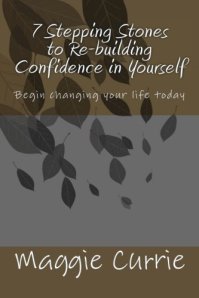Fear of failure is probably the single greatest obstacle to success in our adult lives. We often become totally preoccupied with not making a mistake and with seeking approval. The fear of failure is expressed in the words “I can’t”.
We feel it in a physical way by the fast beating of the heart, rapid breathing, sweaty palms and a tight throat. We also experience this in the irresistible need to run to the loo.
Our second major fear that creates an obstacle in our performance is the fear of rejection. We learn this at a very early age when our parents or guardians make their love conditional upon our behaviour. If we do something to please them, they give us love and approval. If we do something to displease them, they withdraw their love and approval – which we often interpret as rejection.
Going through divorce can trigger these feelings of failure. But a very important thing to remember is: the marriage failed, not you.
As adults, we become preoccupied with the opinions of others because of this perceived rejection. Many people develop hostility, suspicion and an obsession with performance to some imagined high standard. It is virtually impossible to achieve this as it really doesn’t exist.
There is a belief that we have to work harder and accomplish more in order to please the boss. The boss has replaced the parent and is therefore perceived as the approval giver.
Research has shown that more than 99 percent of adults experience these fears of failure and rejection. They are caught in the vicious circle of feeling, “I can’t, but I have to,” and “I have to, but I can’t.”
We can beat these fears by developing our self-esteem, courage and character. We can increase our self-love and self-respect. Acting with courage in a fearful situation is one technique that boosts our love for ourselves to such a degree that our fears subside and they lose their ability to affect our behaviour and our decisions.
Firstly, we need to realise and accept that we can do anything we put your minds to. Repeat the words, “I can do it! I can do it!” whenever we feel afraid. Write ina journal all your successes so you can remind yourself how good you actually are.
Secondly, we need to continually remind ourselves of just how wonderful we are, think of ourselves as valuable and important people and remember that temporary failure is one way we learn how to succeed.
If you need help with any of the above, please contact me.
I am helping people to become the very best version of themselves and would love to work with you.
I have some availability for new coaching clients, we just need to fix some dates for when you want to get started. Get in touch today.










